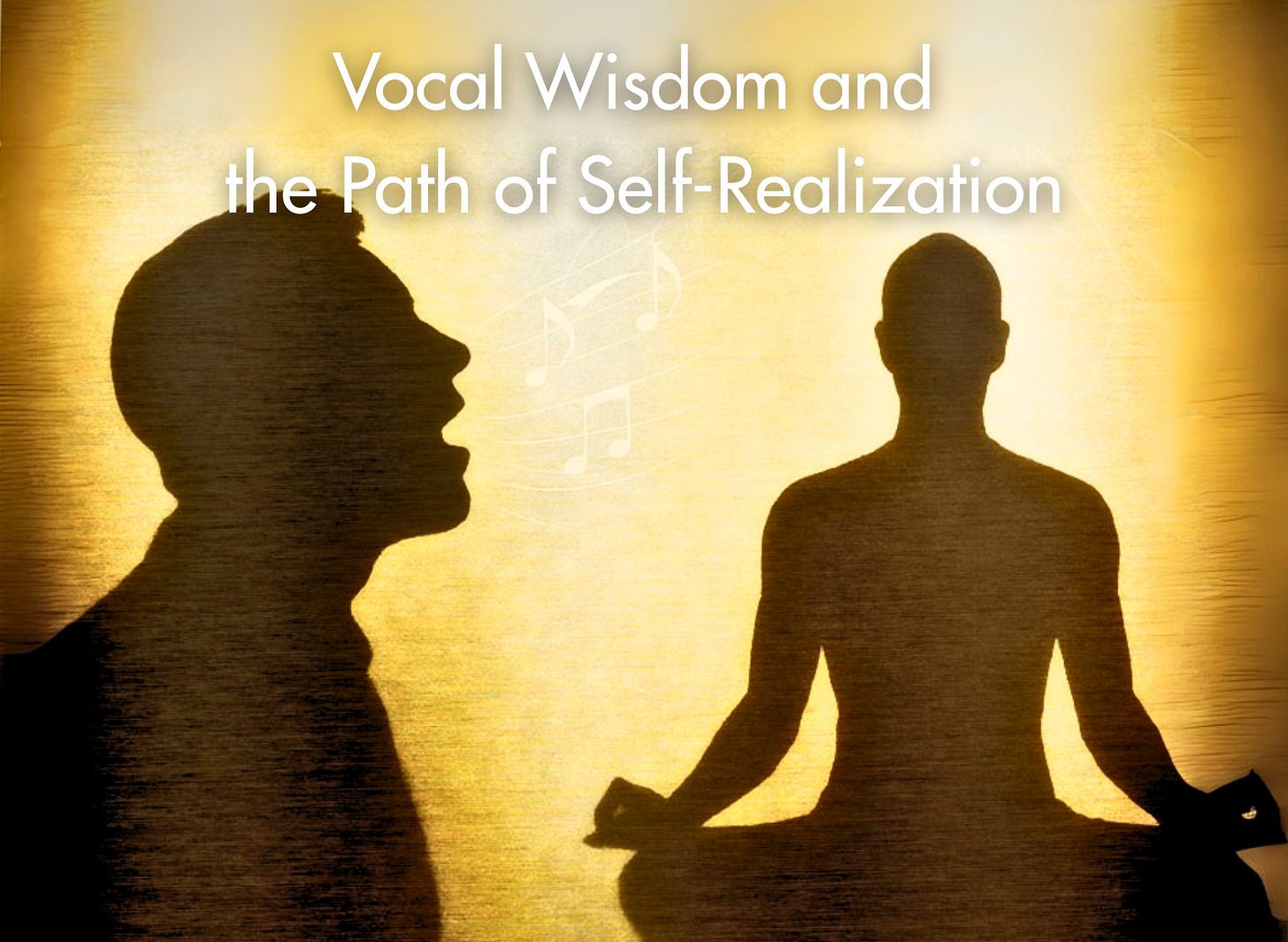Vocal Wisdom and the Path of Self-Realization
A introduction to an exploration of the Voice and Spirit.
Neva Pilgrim was a magical woman with an uncanny ability to help anyone sing more freely, and more truthfully with every lesson. As a young singer, my lessons with Neva felt like mystical experiences. They were the perfect blend of intuition and knowledge made manifest.
One of the first things you saw upon entering Neva’s house was her office and library, just off the generous foyer. It was a true repository: shelves lined with music scores, books on vocal technique, diction, interpretation, and acting. It was a library not just in name, but in function. Neva often lent her books to students and colleagues in need. The Xerox machine was frequently whirring, busy with copies requested by the many people who came through her door.
She would often have my Xeroxes ready to be picked up on her piano with “Daniel” neatly scribed in her distinctive penmanship.
As a young singer, I wanted to be like her. She inspired me to become both a voice teacher and a performer.
Enter Lamperti, stage left.
I once asked if she had any books on vocal technique that she’d recommend to an aspiring teacher. Without hesitation, she handed me her copy of Vocal Wisdom: The Maxims of Giovanni Battista Lamperti, transcribed by William Earl Brown. It was dog-eared, the spine worn and fraying from use.
Soon after receiving it, the book became my vocal bible. Like any sacred text, it’s full of wisdom but also requires interpretation. In many ways, it became a gateway to my path as a yoga, meditation, and voice practitioner. The writings of this great sage of song began to echo the sacred texts I would later study—The Bhagavad Gita, The Yoga Sutras. A web of commonality began to emerge between spiritual inquiry and vocal study.
“A teacher can only reveal our self to ourselves.”
— Lamperti
This reminds me of Yoga Sutra I.3:
“Tada drashtuh svarupe avasthanam”
Then the Seer (the true self) abides in its own true nature.
As in yoga, the real purpose of vocal study isn’t to become something new but to reveal who you already are. The teacher doesn’t give you a voice. They help you uncover what’s the voice you’ve always had.
The Mirror of the Voice
The study of voice is a mirror. It shows our insecurities, our joys, our passions, our exuberance, our fears, our dreams. To move into the state of vocal mastery requires one to embark on a journey to oneself.
There are countless lessons I’ve taught that have led to tears (and not because I’m a big meany) because the unfolding of the voice triggers life events, memories, or shakes the energy of the student. The study of voice vibrates and shakes away everything that is inauthentic with time and study. What’s left is the real self, a voice that stands in its power and truth.
“Samadhi bhavana arthah klesha tanukaranarthah cha.” Translated to: “The purpose of (Kriya Yoga) practice is to cultivate Samadhi and to weaken the Kleshas”
— Yoga Sutra II.2
This sutra portrays yoga as a practice meant to reduce that obstacles that hinder self-realization and cause suffering (the kleshas) and reveal essential nature of the Self. The commonality between these endeavors are clear.
“Each voice is a law unto itself.”
— Lamperti
Each voice, through our constant study and devotion to its beauty, becomes its own natural law. Its own force of nature. There are common principles, but it is through our conscious exploration of the voice and the Self that we discover its unique way of being. This sentiment is echoed in another sutra, III.13:
“Nimittam aprayojakam prakritinam varanabhedas tu tatah ksetrikavat.”
Change doesn’t come from force, but by removing obstacles—like a farmer clearing a channel for water to flow.
That’s what studying voice is. We don’t create the voice, we clear away elements that prevent its flow. We make space through the breath and the voice teaches us how it wants to move.
You begin to fall in love with your own voice, cherish it, as you would cherish a child that you raise. You see it’s beauty, it’s innocence, and you have seen it through it’s struggles, and pain. You build compassion. In that compassion, you discover freedom.
With ultimate freedom as a cornerstone to practice, we discover the laws of our voice’s freedom of expression.





Very beautiful. It's true: technique is often a painful unraveling process towards naturalness, wisdom, and beauty.